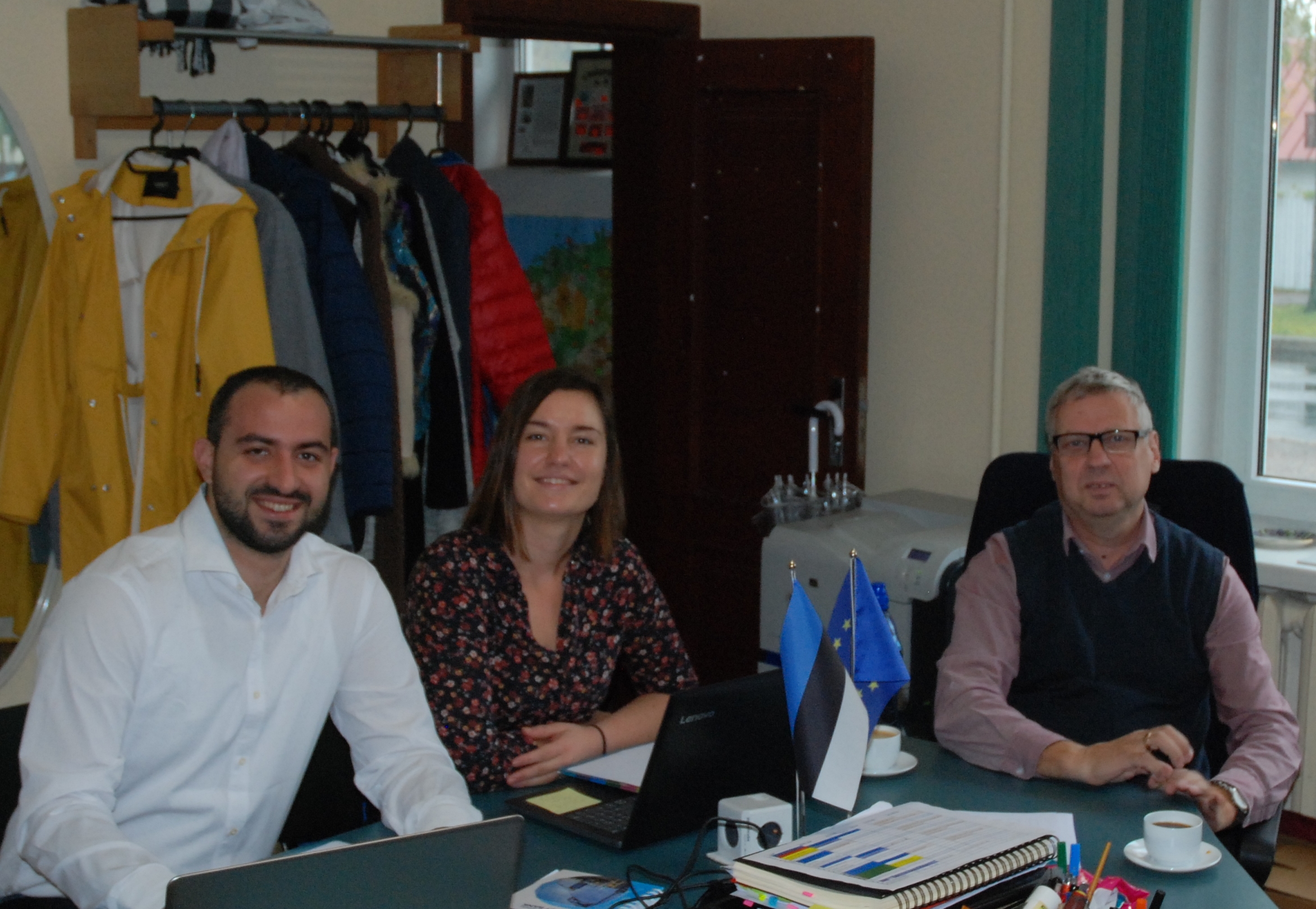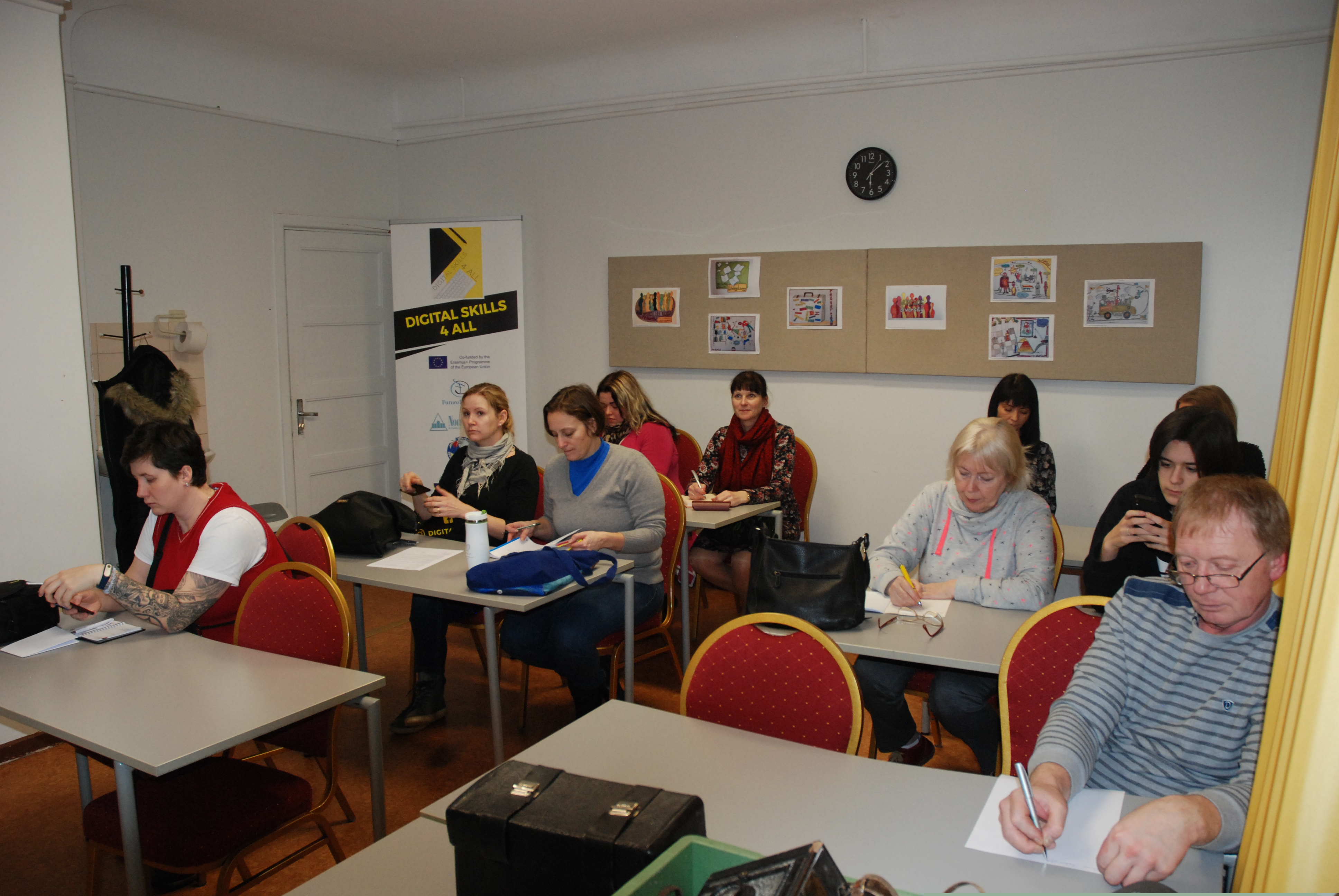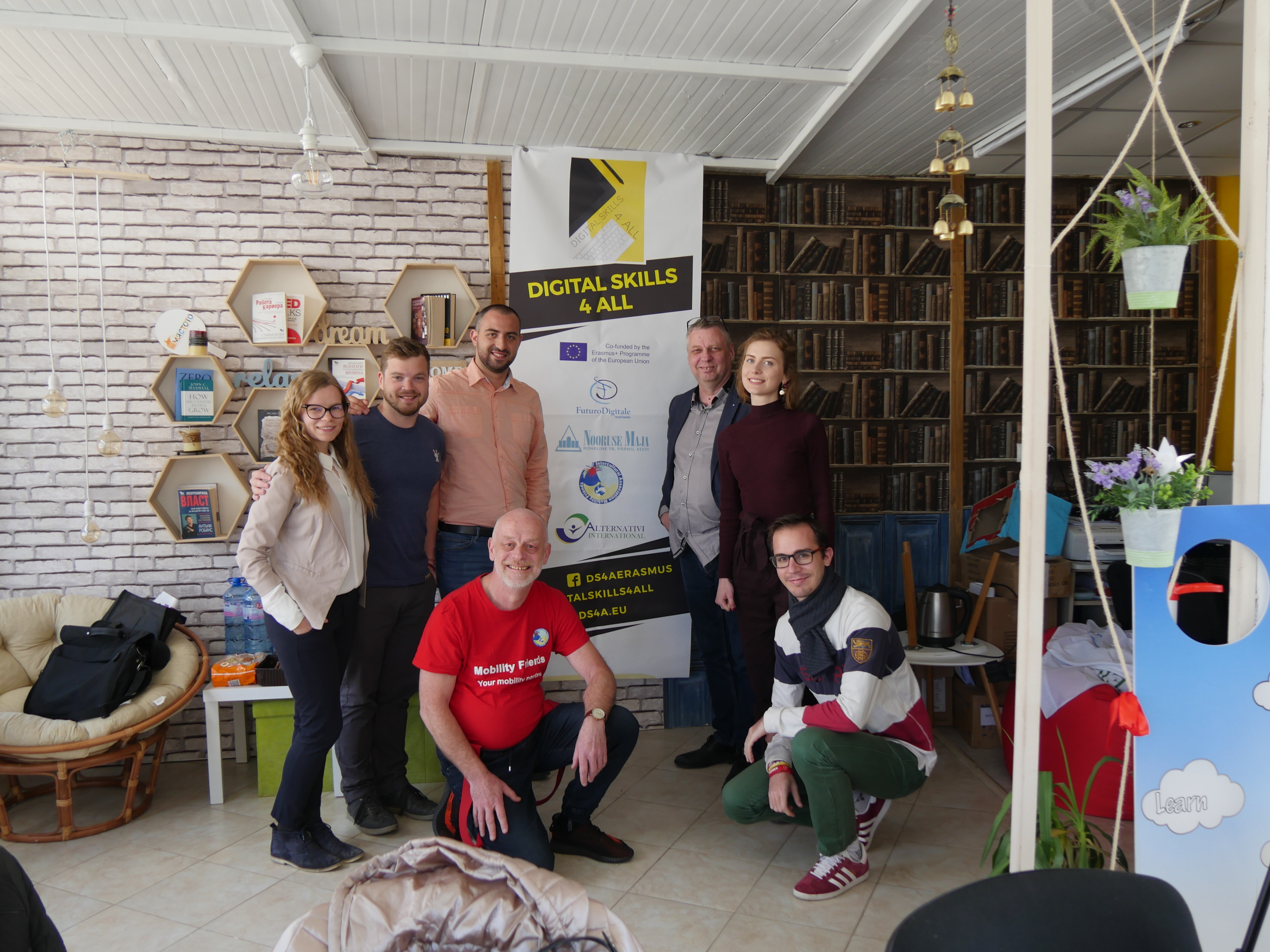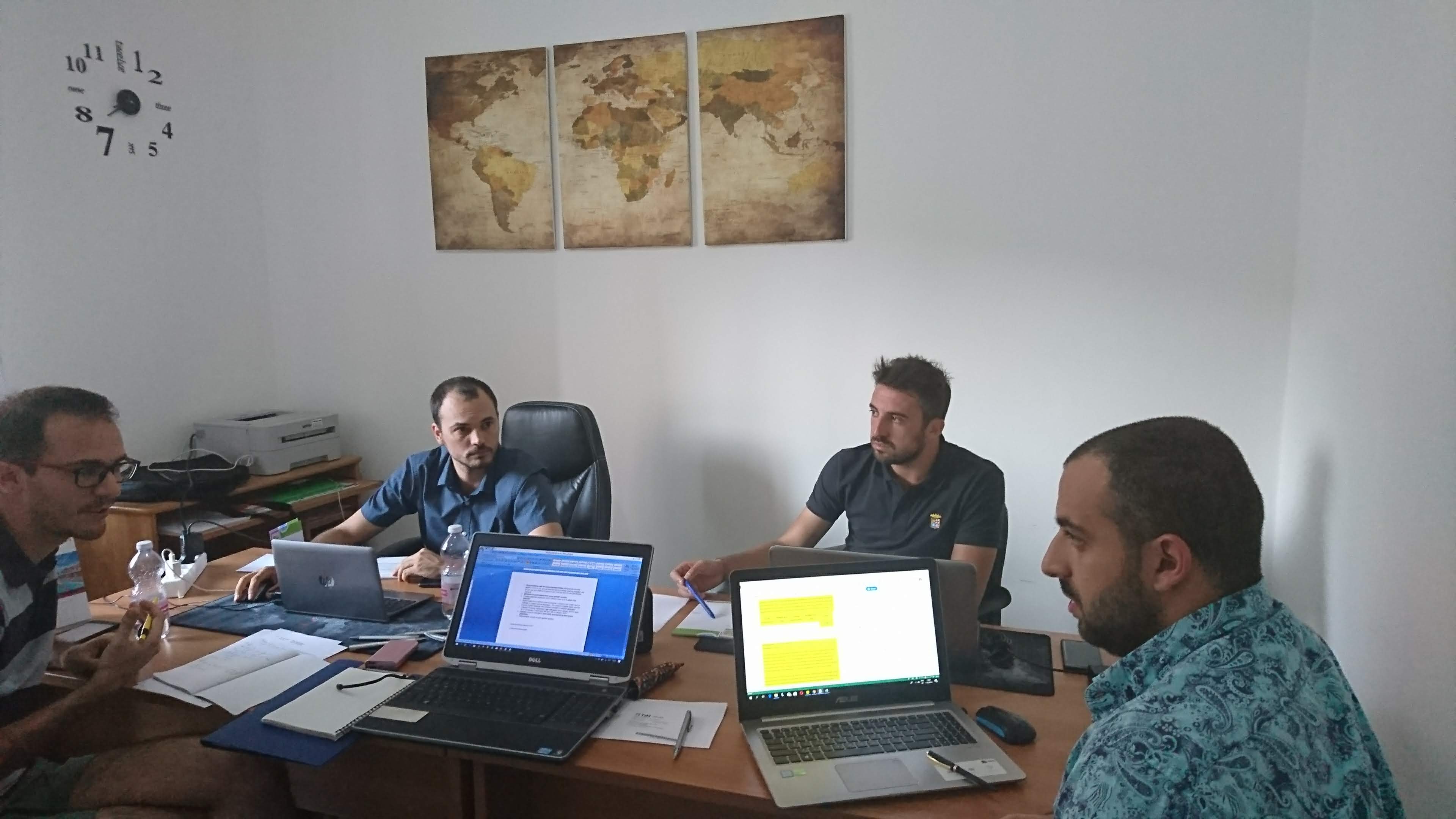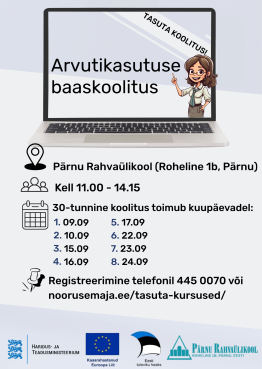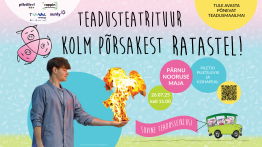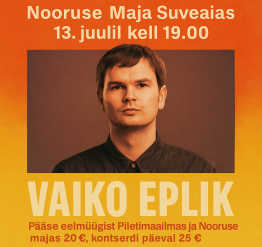Digital Skills 4 All (DS4A)
Strategic Partnership project
2018-1- EE01-KA204- 047080
The project “Digital Skills 4 ALL” aims to provide guidance and training for adult educators across Europe on how to use ICT tools and digital methods to better deliver basic skills adult education. This will be done through an integrative approach in collecting, sharing and disseminating innovative and inclusive teaching and learning practices using ICT tools and digital methods.
The main objectives are:
-To reflect adult educators’ role in relation to digital approaches;
-To empower adult educators to fully exploit all the potentials of digital education and ICT tools to deliver basic skills education;
-To improve adult educators’ knowledge of usage of different digital tools making them understand what kind of skills are needed in different contexts;
-To provide adult educators with appropriate training opportunities for further developing their professional knowledge, skills and competences;
-To enhance mutual learning and share of good practices;
-To compose a set of learning materials as open educational resources (OER);
-To create an online platform that will contain all the outcome of the projects and allows adult educators/teachers/trainers to use quickly and easily all materials produced during the project.
Project leader - Rääma Noorte Ühing Noorus. Project partners - Mobility Friends (Portugal), Futuro Digitale (Italy), Alternativi International (Bulgaria)
Project Kick off meeting was 6th of October 2018 in Pärnu
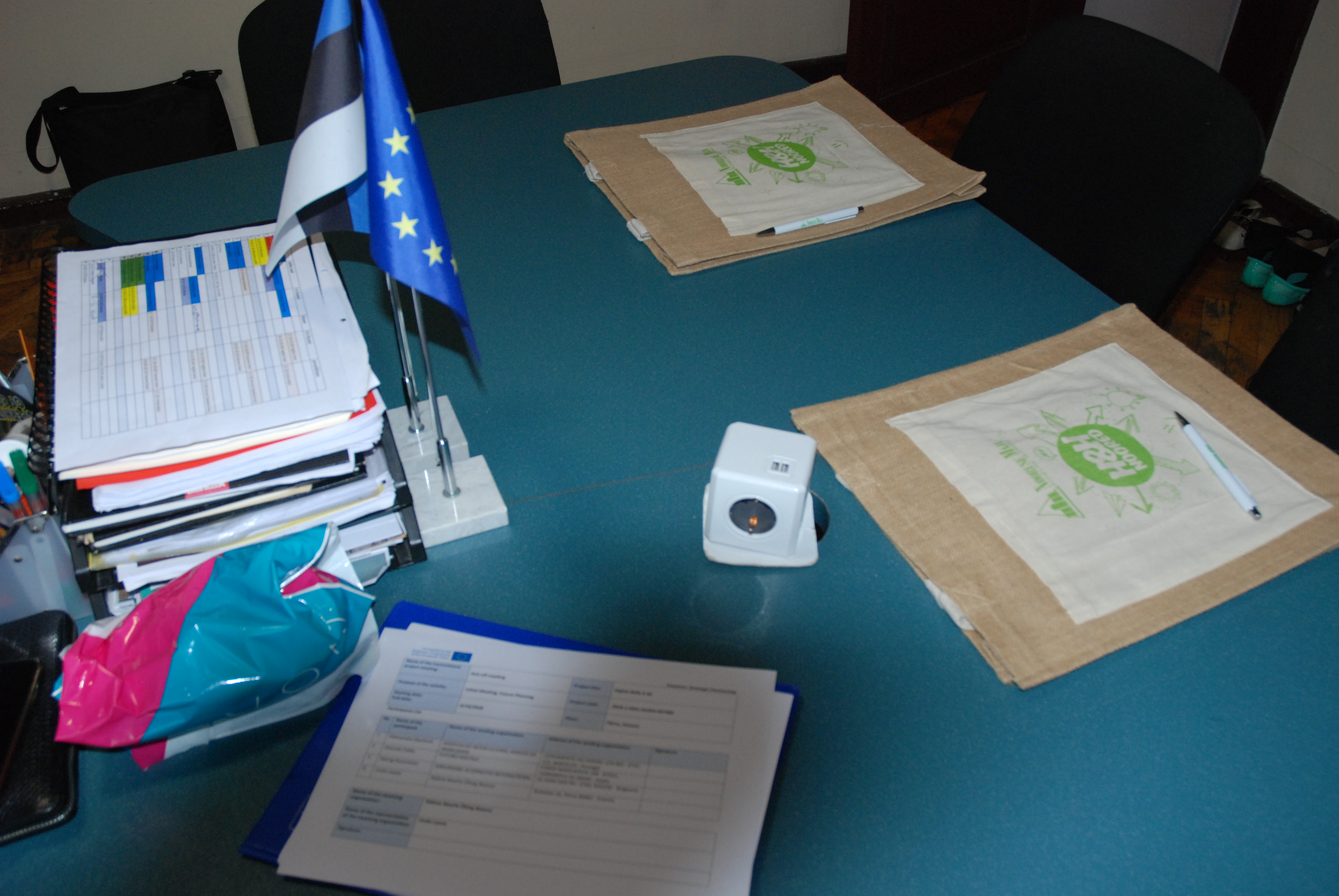
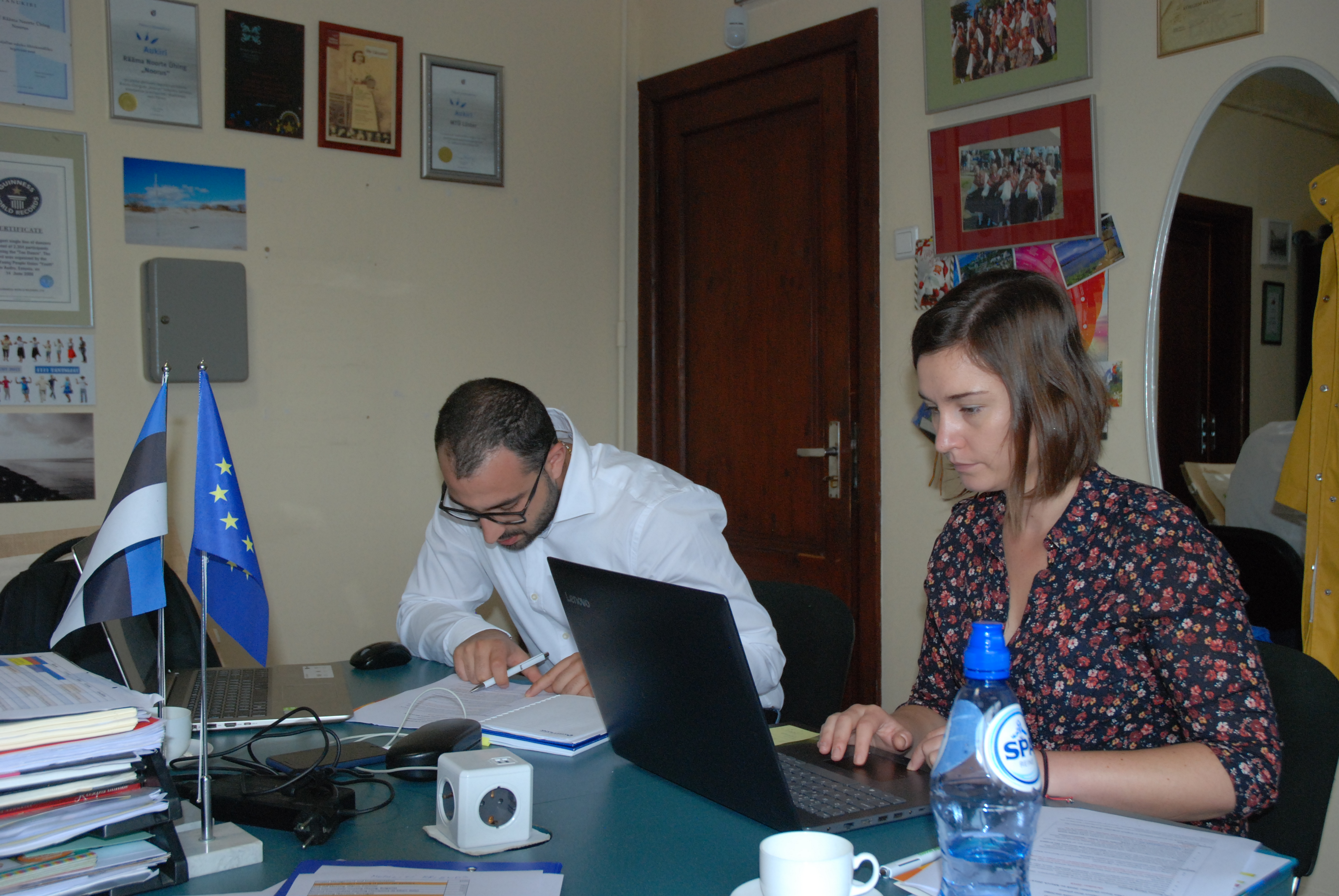
We get 312 answers to survey from trainers and 277 from adult learners.
20.02.2019 we introduced survey results in Nooruse Maja.
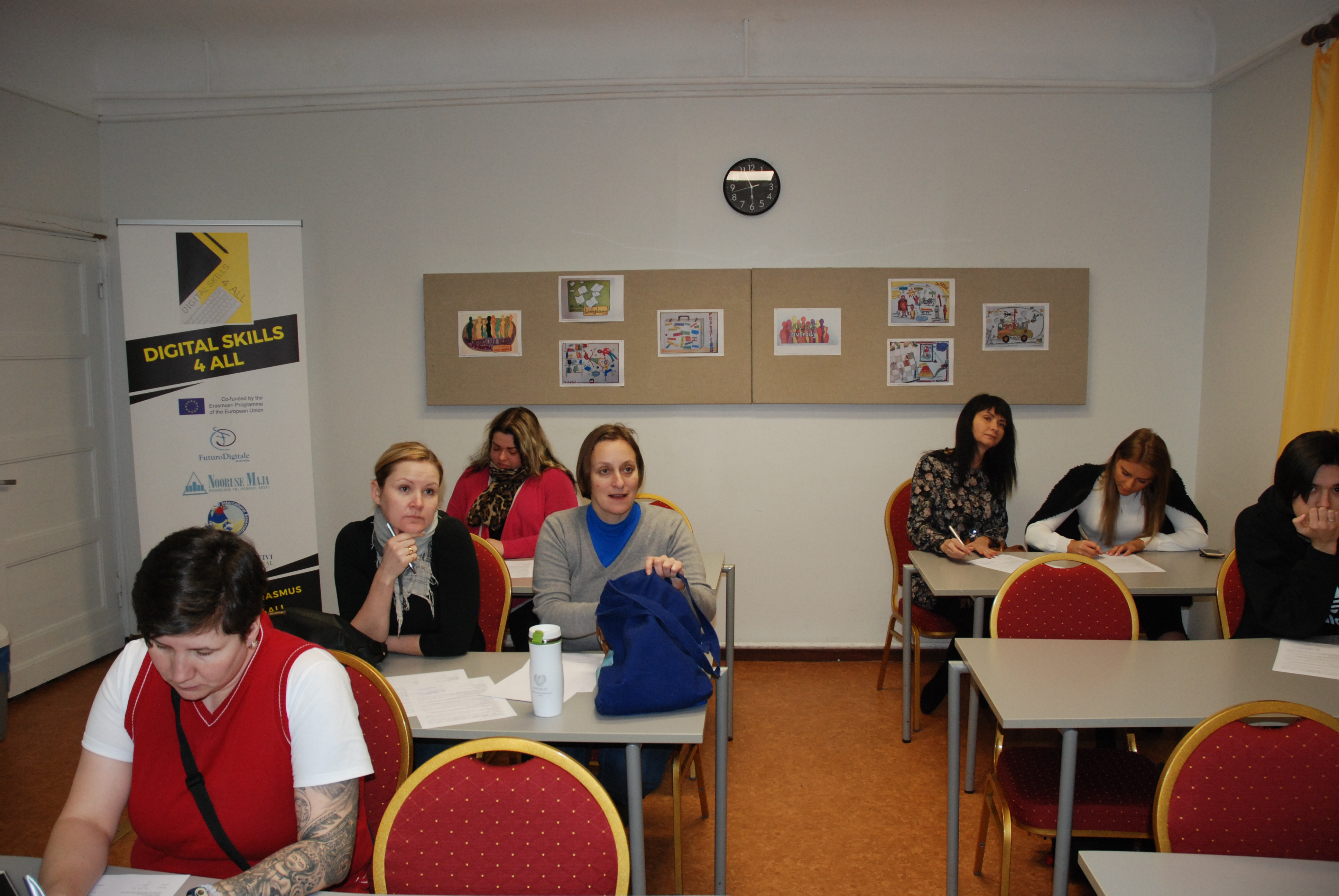
05.03.2019 Uudo Laane introduced ongoing ERASMUS+ projects in Development Centre of Pärnu County
 Please visit also project website
Please visit also project website
The transnational meeting take place in Bulgaria, Blagoevgrad.
We were weighing project survey results and agreed topics for e-learning modules
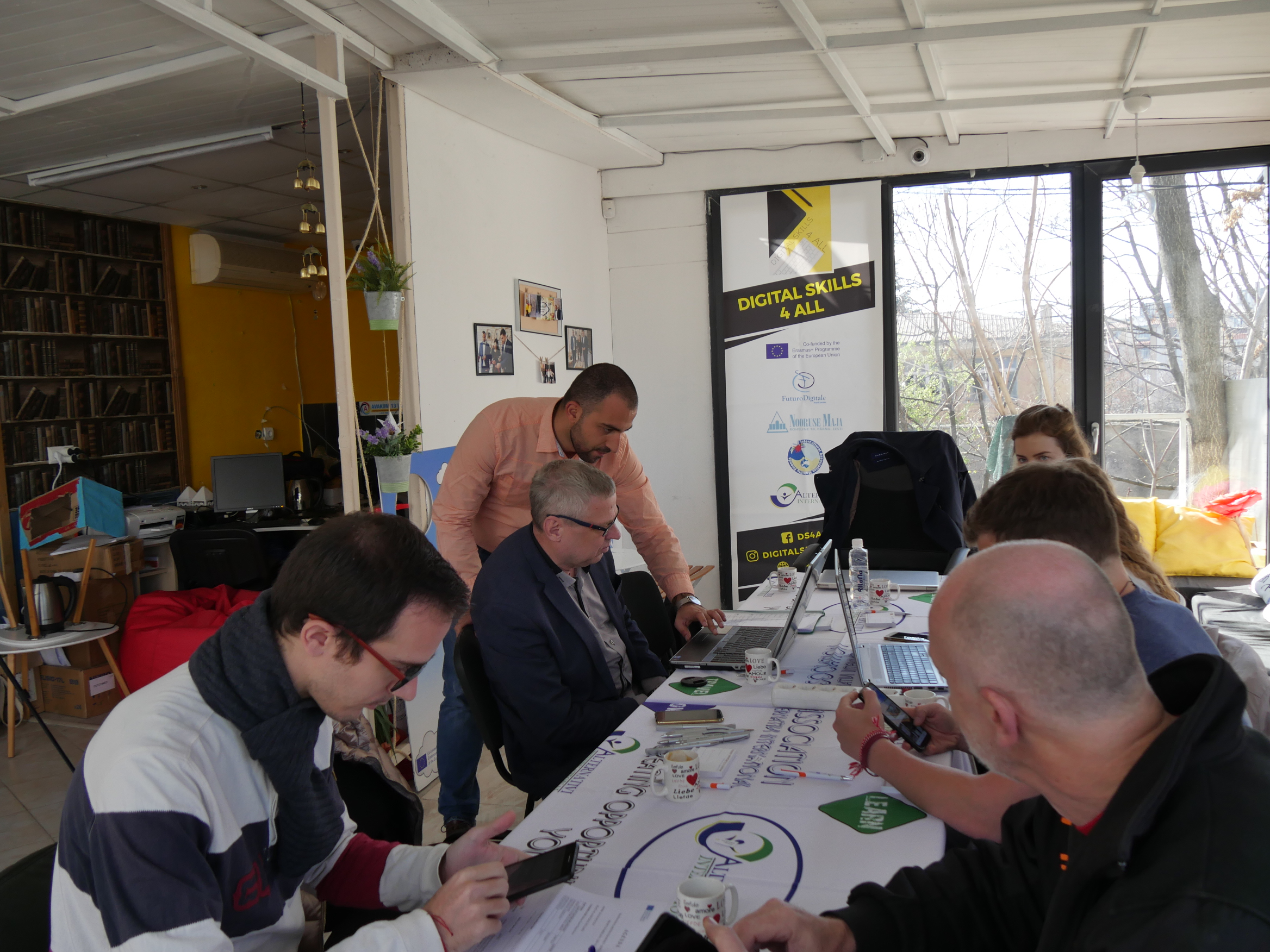
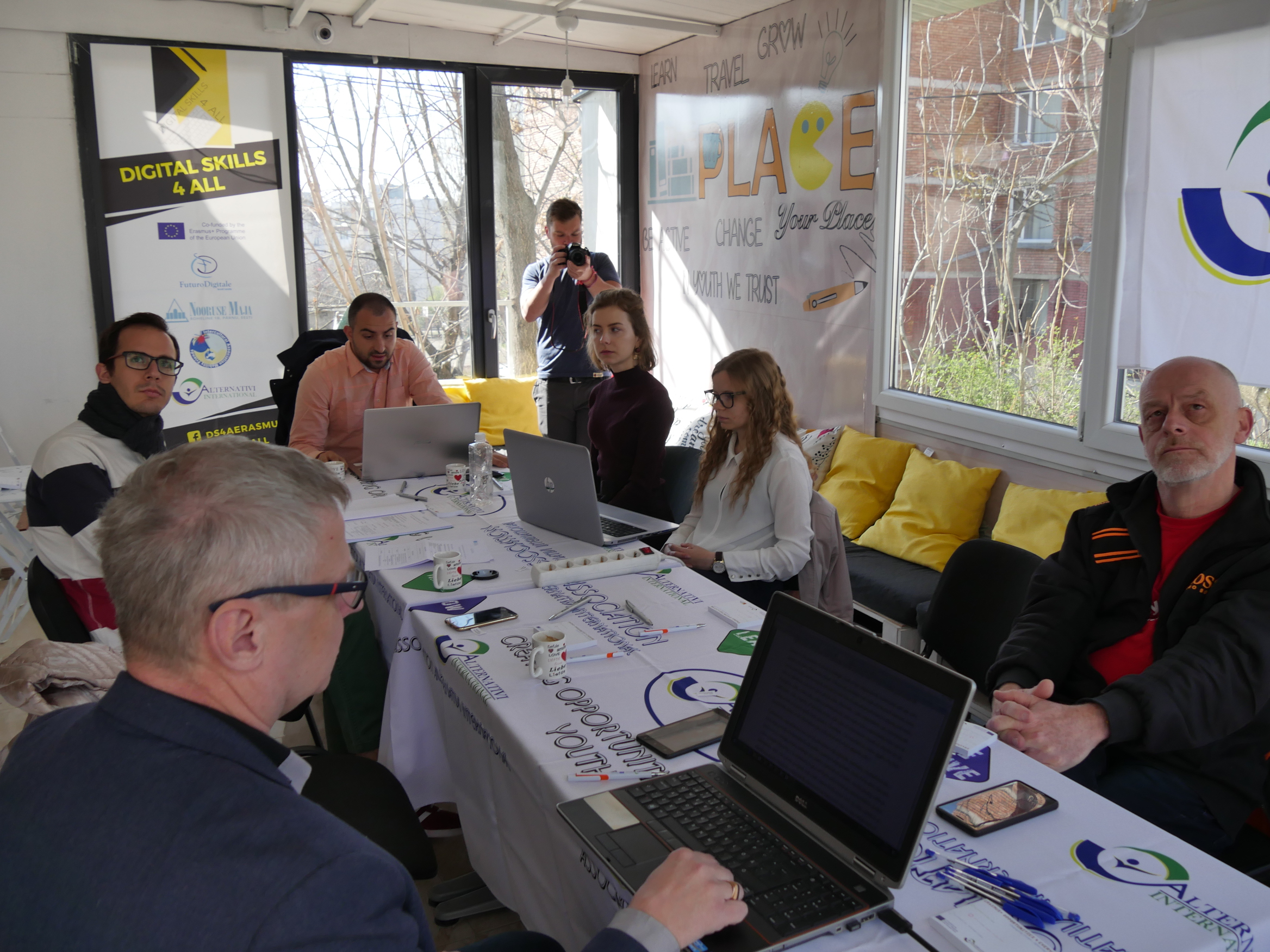
The third Transnational meeting take place in Lameze Terme, Italy
Partners have reviewed the results so far of the project. It was decided to improve access to the e-learning platform and made it more user friendly. Today the e - learning platform is ready and free to use for everybody.
We agreed a chapters of Digital guide, dates for training in Estonia (9-16 of January 2020), multipayer event and the final transnational meeting in Portugal in April 2020
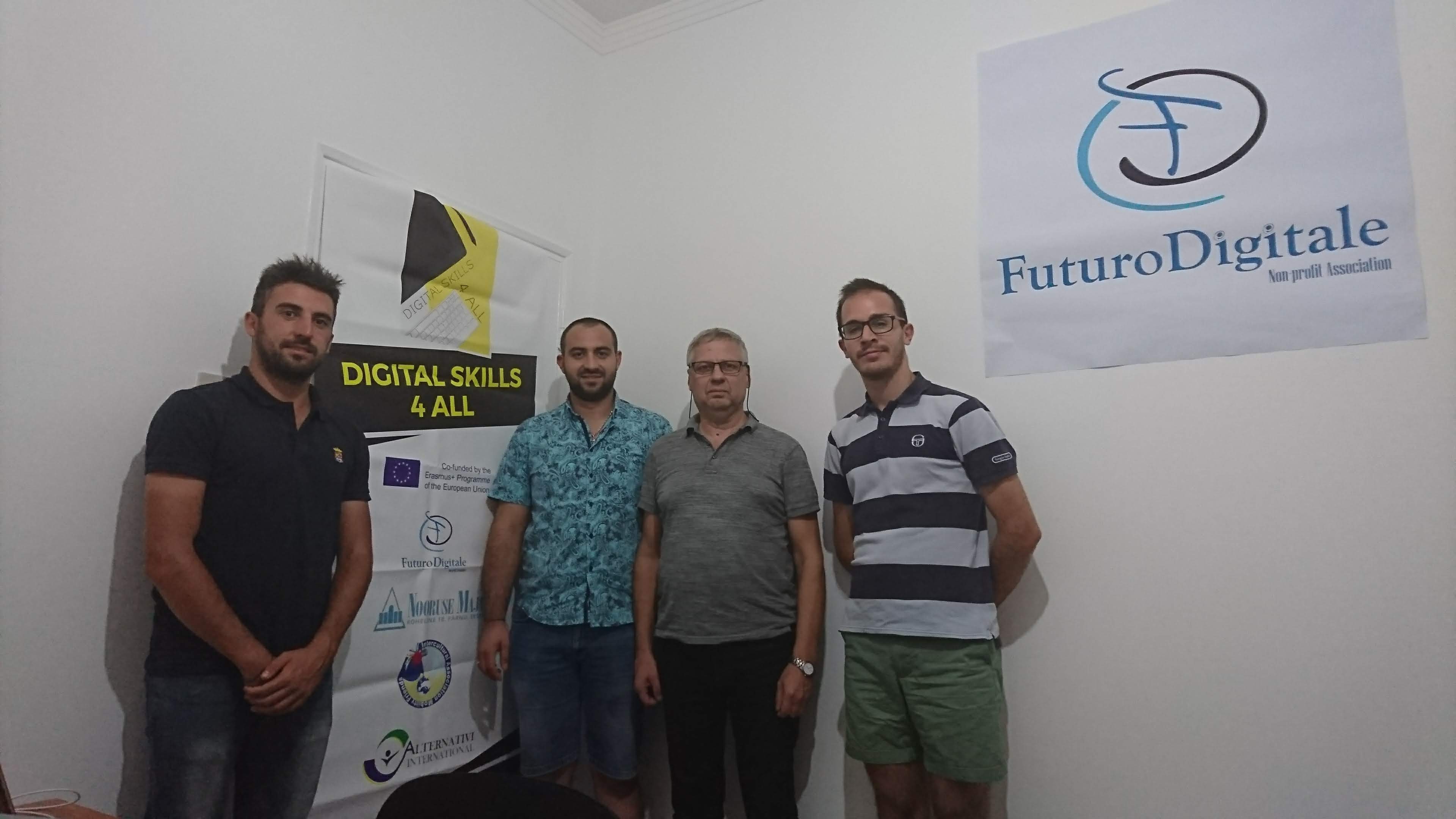
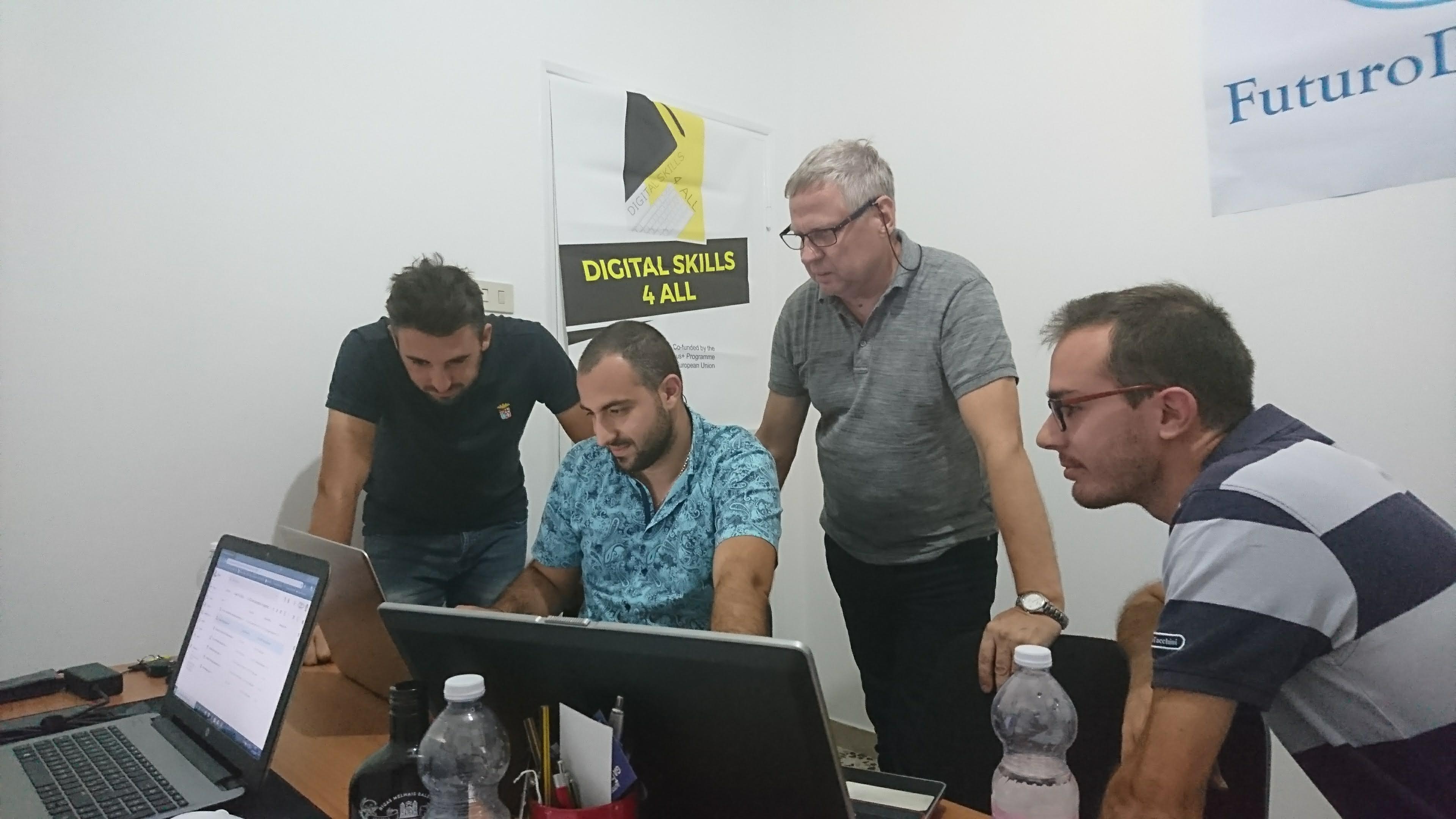
From 9th to 16th January 2020, the Training Event of the KA2 Digital Skills 4 All project was held at the headquarters of Nooruse Maja, in Pärnu, Estonia. The participants, in total, were 20 from four different countries, Italy, Bulgaria, Portugal and Estonia. The Training Event began with activities to break the ice among the various participants, followed by a team building to carry out activities with different methods and games.
The participants were adult educators of each partner organization needed to gain a better understanding of ICT and digital skills education and the role of non-formal learning and informal learning in supporting adult formal education pathways. Indeed, in the training were used a non-formal and formal learning methodology. It was organized by Nooruse Maja.
The first aim of this training event was to check if participants through taking the e-learning modules (IO1)) learnt the skills needed to deliver basic digital skills education to low-skilled or low-qualified adults. The second aim was to push participants to contribute through the sharing of good practices, recommendation and creation of new educational resources during the project to the development of the Digital Guide of best practices (IO3). The course lasted 6 days and in the course both theory and practice were taught. All the best practices and recommendations generated by project participants will be inserted and mentioned in the Digital Guide (IO3).
A detailed schedule of activities was developed during the project second intermediate meeting. For the organization of this training were taken in consideration the outcome of the e-learning modules (IO1), the learning process of participants and overall progress of the project. However, during the training some sessions was dedicated to:
-how technology should be integrated into adult basic skills education,
-how participants should start implementing what learned in their local contexts,
how to use the Training Materials handbook (IO2)
how to use several teaching methodologies which incorporate digital technology in adult education in order to determine what might be learned from these studies in order to collate a set of good practice guidelines.
-how to create communication sites using different platforms such as Trello, Powtoon and Kahoot.
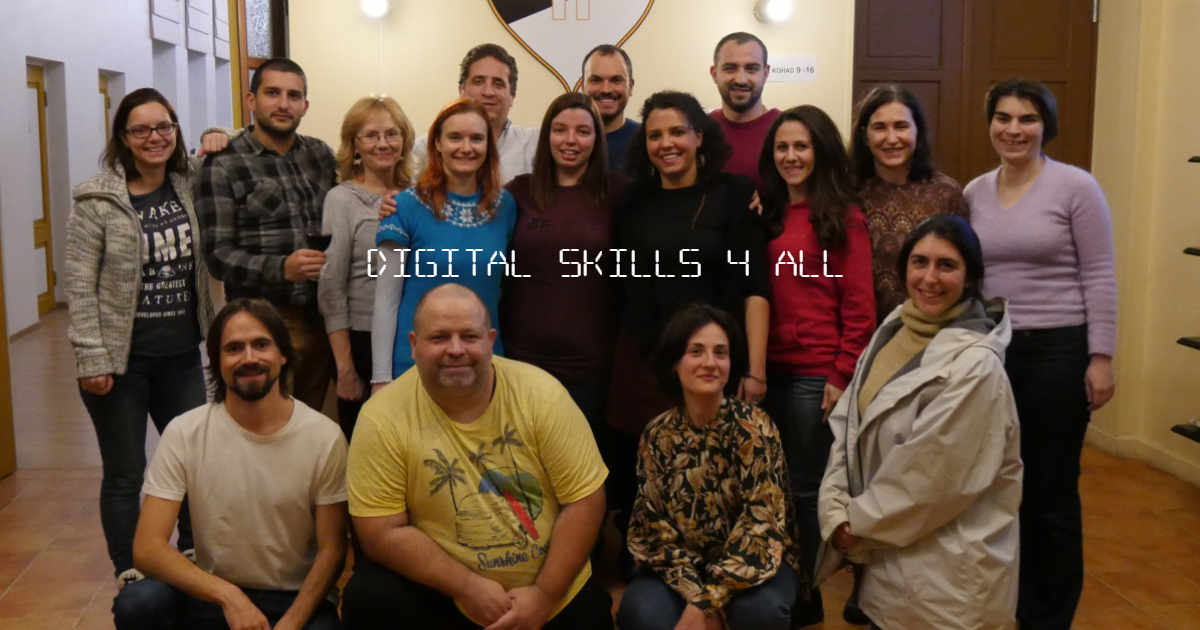
28th of April we had project Multiplier Event in Zoom. For access you might need a password 8O@!5gHr
Here is content shortly in English:
Due to Covid-19 pandemic, there wasn’t an opportunity to do the multiplier event as it was planned in the project. Therefore, we asked permission from Foundation Archimedes to do the multiplier event online. On 28th of April 10.00 AM, Estonian partner Nooruse Maja organised a multiplier event online, by using the Zoom (https://zoom.us/) application.
47 participants joined our webinar 39 of them we could recognize. During the webinar we introduced project partners and their tasks. Then we introduced the aim and objectives of the project “Digital skills 4 all”. Next there was a brief review of project activities - the meetings, the survey, the training and intellectual outputs.
With intellectual outputs we took some time and introduced every single one of it and showed what type of materials were created and where participants could find them. We showed some statistics from the survey and how the modules for the e-learning platform were created. Then we showed how to go to the e-learning platform and how to use it. Then we introduced the handbook for different ways of learning and the digital guide.
After the introduction of “Digital Skills 4 All” we had a “Tips & Tricks” feature in the webinar. We introduced some easy yet helpful online tools to enhance their teaching during the time of distance learning. Therefore, we introduced Padlet and shared our working padlet wall that was created for the “Digital Skills 4 All” project - https://padlet.com/helin_laane/ds4a.
We showed most of the online tools that are listed there to the participants. Next we introduced Trello for collaborative work, Keamk for generating groups, Doodle for time management etc. In the end we answered some questions about the online tools and about the project.



